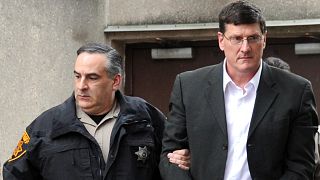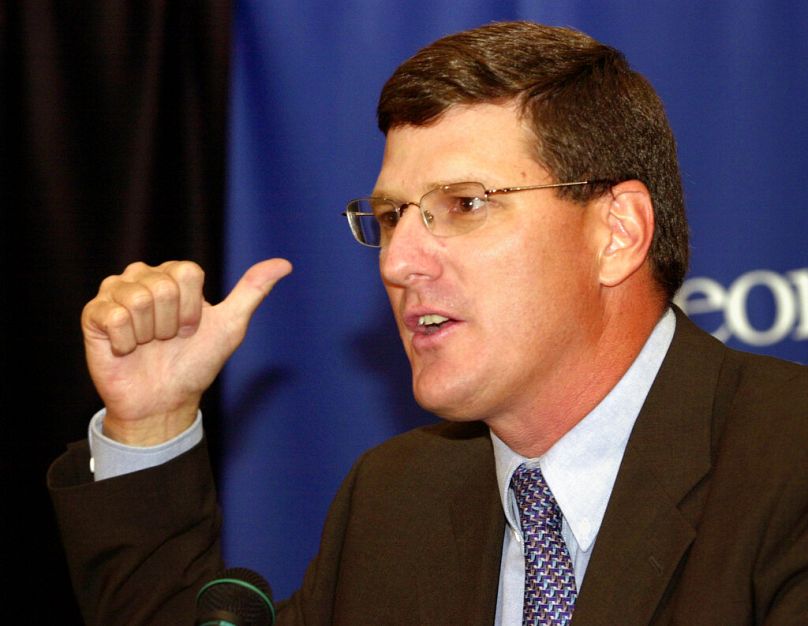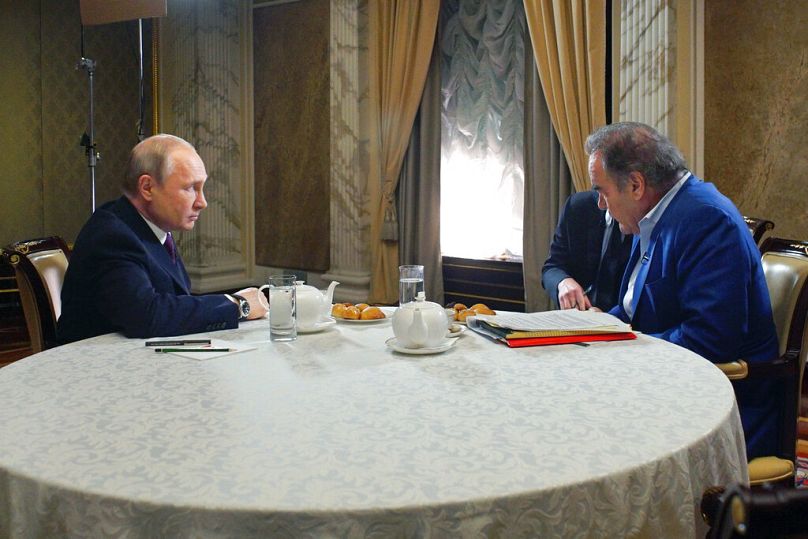風蕭蕭_Frank
以文會友Why do disgraced Americans like Scott Ritter spout pro-Putin propaganda in Russia?
By Una Hajdari 24/05/2023

While the concept of Western intellectuals kowtowing to Soviet leadership – and downplaying their crimes – was relatively common during the Cold War, it has gained new momentum since Russian President Vladimir Putin made clear his plans to either break up or occupy the entirety of Ukraine.
Scott Ritter, a former UN weapons inspector in the 1990s, and a Marine Corps analyst during the Soviet invasion of Afghanistan a decade prior, is among the cohort of Americans courted by Russian propaganda sources.
Recently, he launched a tour of his new book, “Disarmament in the time of the Perestroika,” in Russia, and presented it in cities such as Kazan, Irkutsk and Yekaterinburg. The book, he claims, aims to warn the US public about not seeking out escalations with Russia which could lead to a nuclear attack and insists the Western public has forgotten how difficult it was to achieve these agreements in the first place.
'Running into Russia's cold, confining embrace'
For those with any knowledge of the main political talking points that circulate in Russian media – some of which might be based on real fears, such as that of a nuclear-level escalation – Ritter is singing a song the Russians like to hear.
“People like him turn to Russia and to the cold yet very confining embrace of the Russian government because they’re opportunists,” says Natalia Antonova, a longtime Moscow-based reporter and editor, as well as an OSINT researcher with a keen familiarity with Russian disinformation techniques.
“They see a financial and career opportunity by working for and with the Russians. By that I mean bad Russians, the very same bureaucrats who are enabling Russian fascists today and are enabling this attempt at a genocide in Ukraine.”
Antonova is Ukrainian-American, and for someone who straddles both worlds, Ritter is an example of a typical disgraced American – often a man – who discredited himself in the US and now wants to be perceived as a source of “honest analysis” in Russia as a means to achieve renewed or increased glory.
“Desperate men like him have frequently come to Russia to get a fresh start. It’s true that Russians will overlook anything as long as you’re useful to them. They don’t care,” she explained.

Scott Ritter gestures during a news conference at Georgia State University in Atlanta. 17 September 2002
Ritter is a convicted sex offender, having been caught exposing himself to minors online on several occasions. He served a year and a half in prison. Despite this, he claims he was being targeted by the US administration for his opposition to the war in Iraq.
“If you follow the local Russian news as it reports on Ritter’s grand tour of Russia, in local outlets such as the Kazan or Izhevsk news, none of them mention his arrest record and conviction,” said Antonova.
“They don’t even say, ‘oh this man was wrongfully imprisoned, it was a conspiracy against him.’ They just don’t mention it at all.”
Not all truth-tellers are welcome in today’s Russia. Last week, 500 Americans, including figures like former President Barack Obama and late-night television hosts Stephen Colbert and Jimmy Kimmel, were placed on Moscow's biggest list of sanctioned individuals so far.
Wall Street Journal reporter Evan Gershkovich was arrested in Yekaterinburg in March, and Russian officials are continuing to deny the US embassy access to their citizen.
Ritter, unlike the people on the sanctions list, “gets a chance to reinvent himself and feel good about himself again, and the Russians will let him do it,” said Antonova.
What is a tankie?
The term “tankie” is familiar to anyone with some knowledge of the politics of the former Soviet Union. It emerged during the Soviet invasions of Hungary and Czechoslovakia in the mid-20th century as a reference to those who downplayed the fact that Kremlin tanks were used to suppress protests and opposition in cities like Prague and Budapest.
It is common internet slang nowadays, especially among those seeking to weed out apologists for the Putin regime. You can find tankies of all kinds - from anonymous Twitter trolls waxing poetic about NATO's expansion into Eastern Europe, to renowned journalists and academics.
One of the more distinguished among them is American journalist Seymour Hersh, once a renowned and revered writer, and known for his trailblazing reporting on US crimes such as the My Lai massacre and the torture of Iraqi civilians in Abu Ghraib.
Recently, he launched a ferocious debate after publishing an article alleging the US had bombed the Nord Stream 2 pipeline. The controversial gas route through the Baltic Sea was supposed to circumvent countries like Ukraine and Poland – Russia’s main political opponents even before the invasion -- in delivering gas to the western part of the continent.
“Some people, like Hersh, also really got their spirits crushed. He reported on truly horrifying things that the US military did, like My Lai and Abu Ghraib. These are terrifying events in US history that are shameful,” explains Antonova.
Oliver Stone, the US director famous for films about US presidents such as “JFK” and “W”, has also become part of the formerly illustrious set of Western figures now whitewashing the crimes being committed in Ukraine. He produced “Ukraine on Fire,” which came out in 2014, a movie downplaying the Euromaidan protests that led to the ouster of corrupt pro-Russian president Viktor Yanukovych in 2014 and presenting them as a US-led coup d'état.
“That can really break a person to the point that they kind of turn to the proverbial dark side – and they don’t even realise it. They’re so caught up in the bad things the United States have done that they completely demonise the US,” she said.
Antonova says that while it is patriotic to criticise your country, these figures have gone as far as to “lose some of their objectivity and ability to think critically about some countries,” to the point that they now “start embracing foreign dictators”.

Russian President Vladimir Putin is interviewed by American director Oliver Stone for a documentary in Moscow. 19 June 2019
Do Russians secretly want to be liked by Americans?
During the Cold War, the Soviet Union put a lot of time and effort into convincing its citizens that they are, in fact, living better lives than their Western counterparts.
This was coupled with the firm claim that the Soviet Union was on the right side of history – it had played a crucial part in defeating Nazism in Europe -- and the idea that it was the first country with an expansive socialist system that would provide equal opportunities to all its citizens.
Your average Russian citizen today still wants the West to recognise that they have something special to offer – and that countries like the US should treat them as equals.
“Russians really want Americans to like them. There is a kind of aggrieved revanchism at play there. They might hate Americans on one hand, but they want Americans to care about them and like them,” Antonova explains.
This is why the Scott Ritters, Steven Seagals and Oliver Stones of the world are welcomed with open arms in Russia – especially if they can point to ways the US is perhaps worse than their own country.
Putin has invested a significant amount of time in undermining Western societies, and trying to fight the inferiority complex many Russians feel.
“So when Americans repeat Putinist talking points it means something,” she concludes.




